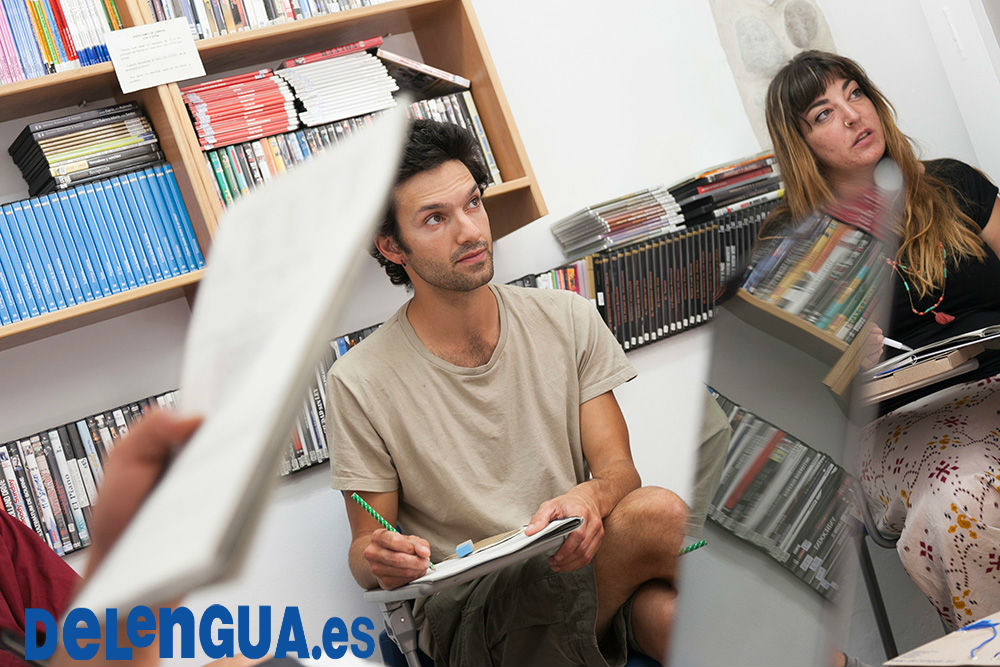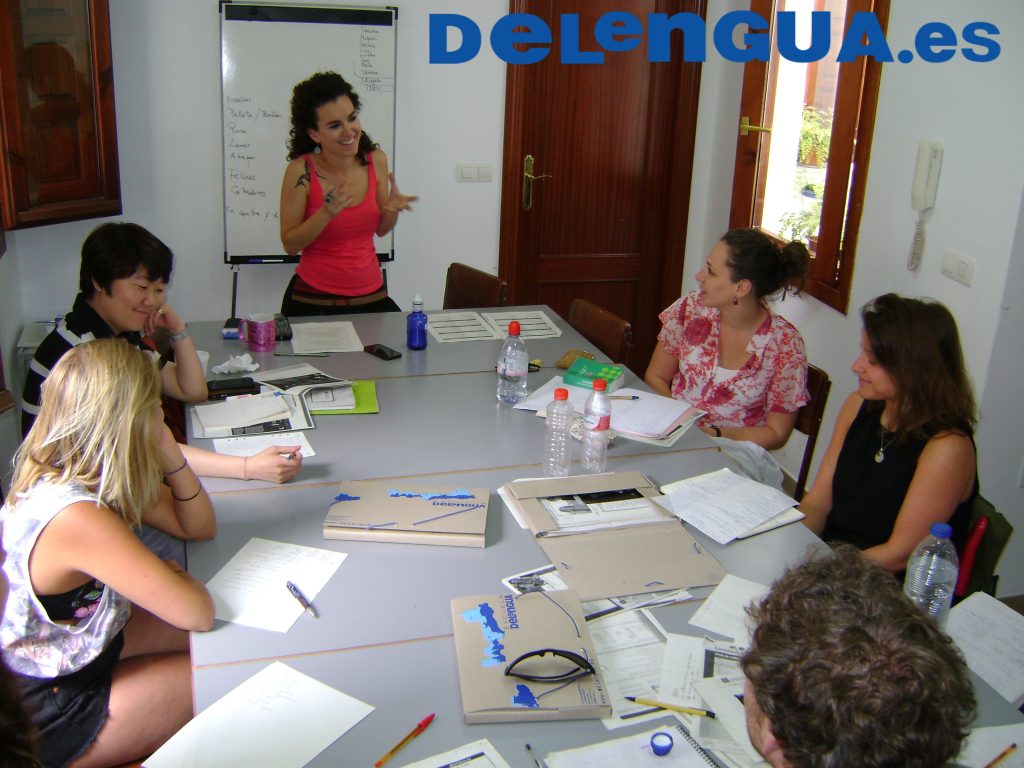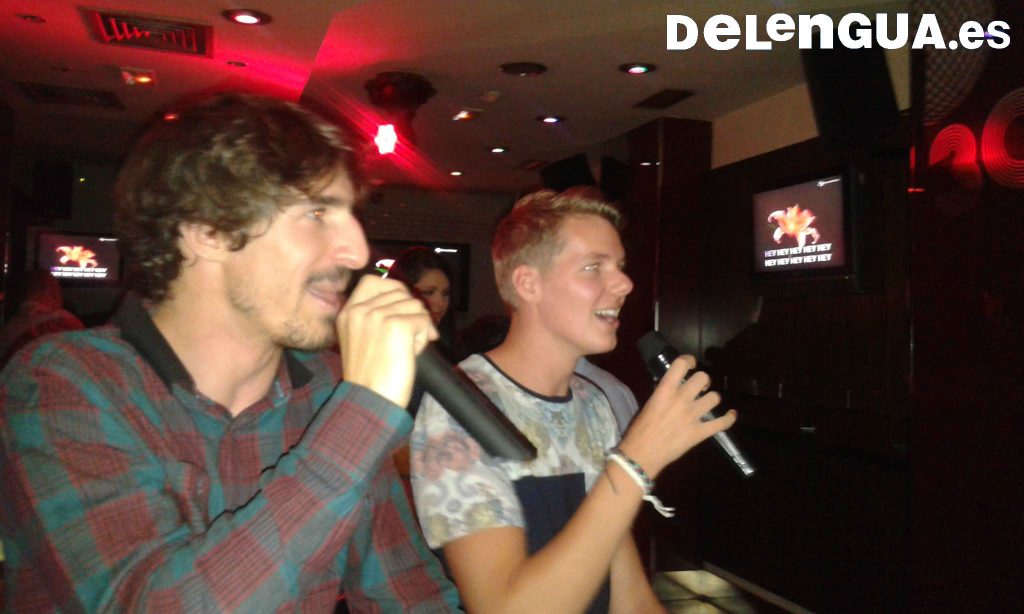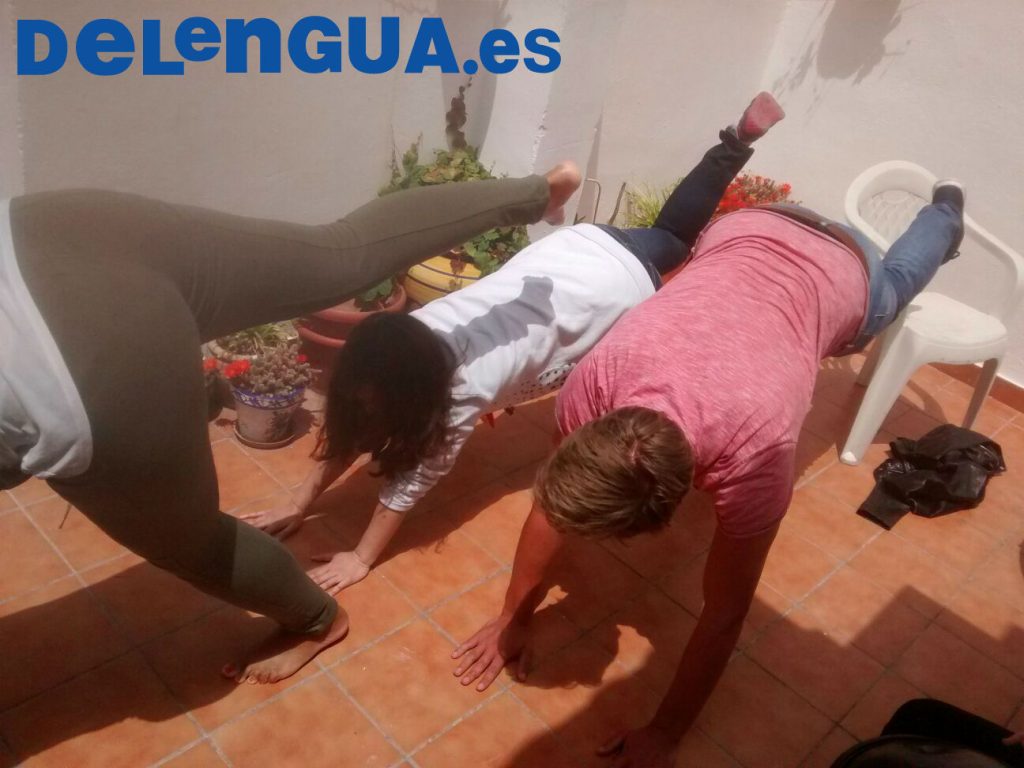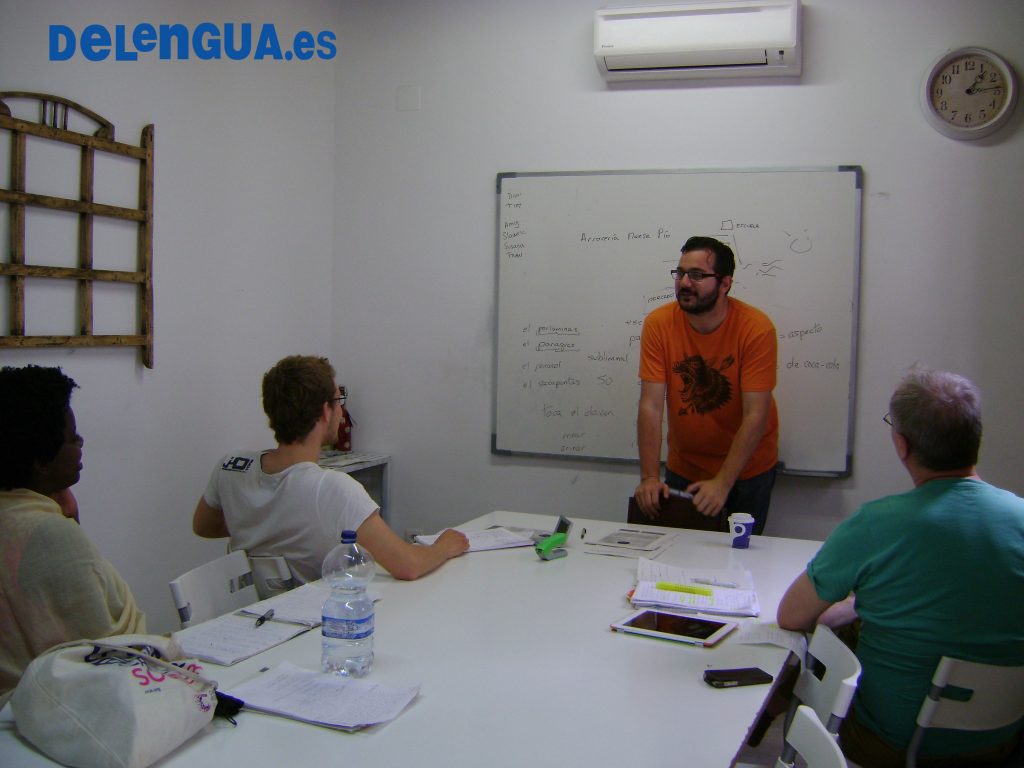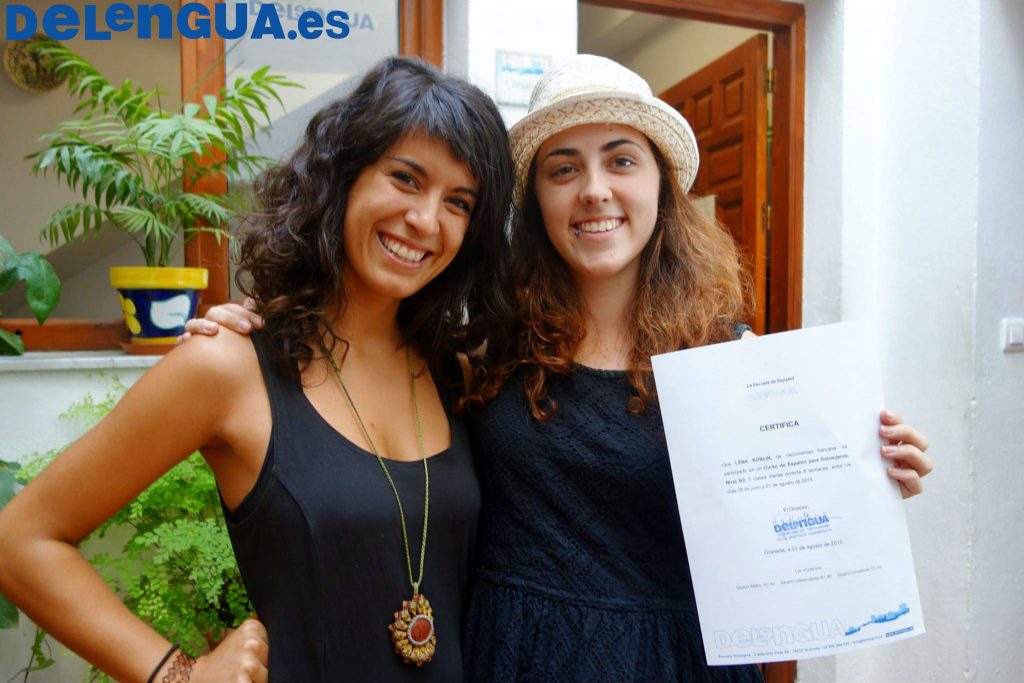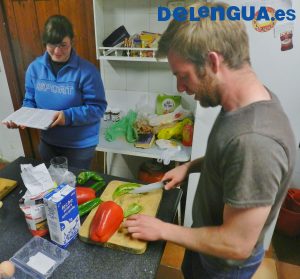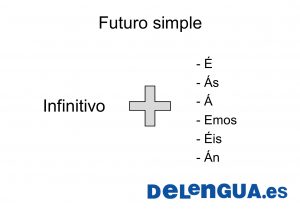
| Español | English | |
|---|---|---|
| El futuro en la lengua española se utiliza en el mismo sentido que en otros idiomas. Hay futuro simple, futuro perfecto y además el futuro que expresa planes en el futuro próximo. Empezamos con la forma con que se expresan planes en el futuro próximo. Para crear esta forma sólo hay que saber cómo conjugar el verbo ir en presente más el verbo adecuado en infinitivo: Voy a hablar con Paco. Voy a hacer las compras más tarde. Ir + a + verbo Inf. ¡y ya está! Así se puede expresar fácilmente acontecimientos, o acciones, en el futuro. El futuro simple, por otro lado, expresa acciones en el futuro próximo pero también en el futuro lejano. Se crea este tiempo con el verbo con el infinitivo más la terminación regular del presente del verbo haber. Los verbos que forman excepciones de la regla son los mismos que en el modo del condicional, y también el cambio se realiza con el mismo esquema: querer → querr-, haber → habr-, saber → sabr-, poder → podr-, caber → cabr-, hacer → har-, decir → dir-, poner → pondr-, venir → vendr-, tener → tendr-, salir → saldr-, valer → valdr-. El futuro perfecto no es más difícil de entender. La formación se realiza parecida a la del pretérito perfecto. Hay que coger el verbo haber en la forma adecuada del futuro simple y añadir el participo del verbo principal. Se utiliza este tiempo para expresa una acción que va a ser terminada en el futuro. Por ejemplo: Dentro de un año habré terminado mis estudios. Hasta el mes que viene habremos renovado el piso. Estas frases expresan acciones acabados en el futuro. El uso y la creación del futuro no se distingue mucho del de otros idiomas. Para estudiar el uso o para mejorar tu nivel del español la Escuela Delengua en Granada te ofrece unos materiales de aprendizaje gratuito en internet. Bajo http://www.delengua.es/spanish-courses-spain/free-spanish-resources.html puedes repetir lo que has aprendido en este texto y mucha gramática más. Y para perfeccionar tu español te invitamos a Granada para estudiar con nosotros, la Escuela Delengua. Estamos directamente en el centro de la ciudad antigua y te esperamos con un programa de estudios de español y actividades culturales. |
|
The Future tense of the Spanish language is used in the same way like in other languages. There are the Future simple, the Future perfect and also the Future tense which expresses plans in the near future. Let’s start with the form which expresses action in the near future. To build this form you just have to know how to conjugate the verb ir in the present tense plus the appropriate verb in the infinitive: Voy a hablar con Paco/ I’m going to talk to Paco. Voy a hacer las compras más tarde/ I’m going to buy food later. Ir + a + verb Inf. and ready! So you can express easily events and actions in the future. The Future simple, on the other side, explains actions in the near but also in the distant future. You build this tense with the verb in the infinitive form plus the regular present ending of the verb haber. The verbs, which build exceptions of the norm are the same like in those in the conditional mode, and also the change will be realized in the same way: querer → querr-, haber → habr-, saber → sabr-, poder → podr-, caber → cabr-, hacer → har-, decir → dir-, poner → pondr-, venir → vendr-, tener → tendr-, salir → saldr-, valer → valdr-. The Future Perfect isn’t much more difficil to understand. You build in a similar way like the Past Perfect. You have to take the verb haber in the appropriate form of the Future Simple and add the participe of the main verb. You use this tense to express an action which will be finished in the future. For example: Dentro de un año habré terminado mis estudios/ In one year I will be finished with my studies. Hasta el mes que viene habramos renovado el piso/ Till the next months we will be have renovated our appartment. This sentences express actions which are finished in the future. The use and the building of the Future Tense isn’t very different to that of other languages. To study the use or to improve your Spanish level the language school Escuela Delengua in Granada offers some free-learning-material in the internet. At http://www.delengua.es/spanish-courses-spain/free-spanish-resources.html you can repeat what you already learned in this text and lots of more grammar. To perfect your Spanish we invite you a Granada to study with us, the Spanish school Escuela Delengua. We are in the very centre of the antigue city and we wait for you with a progamme of high quality Spanish studies and cultural activities. |




